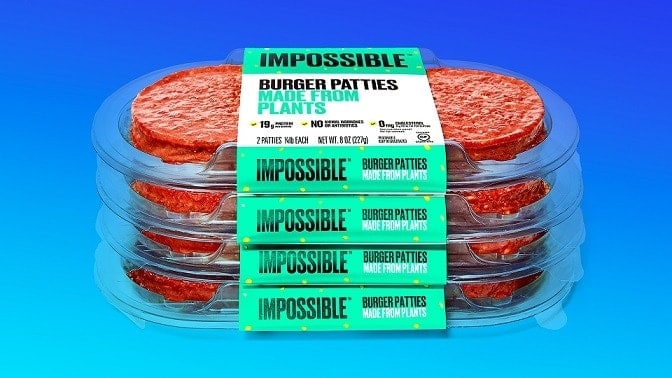
Impossible Burger closer to EU market
Perhaps the biggest industry news of this summer is that the European Food Safety Authority (EFSA) has deemed Impossible Foods’ precision fermented heme, a ‘bleeding’ ingredient in their burgers, safe. This means that Impossible Burgers are getting closer and closer to appearing in EU shops!
The soy leghemoglobin that Impossible Foods uses to increase the juiciness of their burger products is made through a process that combines precision fermentation with a specific type of yeast. The result is an iron-containing molecule – heme – that mimics the taste and colour of animal-derived red meat.
Important precedent-setting decision
With the approval of Impossible Foods, EFSA is setting an important precedent for more precision fermented alternative protein products to enter the market and provide more options for consumers!
The additive, which is intended to be used as a colouring agent in meat substitutes, is proposed to be used at a maximum level of 0.8%. EFSA has not found it necessary to set an acceptable daily intake for soya leghemoglobin.
The approval process has been ongoing since its launch in 2019 and the safety assessment is still ongoing. The company’s next challenge before obtaining marketing authorisation is to pass the safety assessment by the EFSA Panel on Genetically Modified Organisms (GMOs).

What exactly is heme?
Heme is an iron-containing molecule found in plants and animal muscle (myoglobin). It is said to give animal meat the red colour and flavour of the plant-based meat alternative. Impossible Foods uses precision fermentation and a genetically modified yeast, Komagataella phaffii, to produce significant quantities of the molecule in fermentation tanks.
Despite regulatory successes elsewhere, including in the US, Canada, Australia, New Zealand and Singapore, strict EU rules have delayed the introduction of this food additive, as precision fermentation ingredients are considered new foods subject to food safety assessments and regulations. Similarly, in the UK, these new foods require pre-market approval and Impossible Foods’ current products do not contain the company’s fermented heme.
US food technology start-up Motif FoodWorks, South Korean food ingredients company HN Novatech, and Belgian start-up Paleo are also focusing on the plant-based meat production of animal-derived heme.
The world’s biggest market?
With this milestone, Impossible Foods has passed the first stage of the EU regulatory process to allow the sale of plant-based beef products on the common market.
The EU is considered the world’s largest alternative protein market. According to WirtschaftsWoche, EU producers of alternative proteins – plant-based, fermented and farmed – attracted €289 million in investment in the first half of 2024.
In this scenario, plant-based food companies raised €79 million in the first months of 2024, with the most significant investments coming from Spain’s Heura and the UK’s THIS. Both focus on plant-based meat.
So far this year, Europe has seen a boom in fermentation-derived ingredients, such as Onego Bio’s egg whites, Melt&Marble, and NoPalm Ingredients’ traditional fats and oils alternatives, as well as Fooditive’s milk protein casein. Notably, French startup Gourmey last week presented its first application for a farmed meat licence to EFSA. It aims to launch farmed duck liver on the continent.